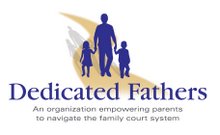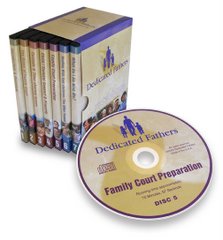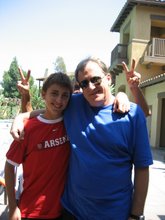COLLABORATIVE DIVORCE COACHING
vs
INDIVIDUAL THERAPY
Marvin L. Chapman, MFT, CFC
Licensed Marriage and Family Therapist, MFC27081
Clinical Forensic Counselor, F16841
Certified Collaborative Divorce Coach
marvin@unitedfathers.org
www.unitedfathers.org
www.dedicatedfathers.org
Many people wonder what the difference is between a mental health professional
providing divorce coaching and a mental health professional providing
individual therapy.
Simply put: The major difference between divorce coaching and individual therapy
is the client, not the coaching or the therapeutic process.
Traditionally, individual therapy involves the assumption that the client is coming into therapy due to some real or perceived “problem” which they want to understand,
discover or have “treatment” thereon because their coping skills and/or current
manner of dealing with their “problem” is not working for them. Due to this
traditional thinking, it has long been a given that if someone is in therapy, something is “wrong” with them. Insurance companies and managed care facilities have
traditionally indicated a more comfortable position in dealing with emotional
“problems” from the medical model.
Simplified, the medical model says there is a disease (the problem), the symptoms
must be documented (a diagnoses from the DSM, yet another medical model),and a plan is laid out as to how the client will be “healed” (from the clinician’s
therapeutic orientation, paradigm or model). Based on this medical model, the
therapist will focus on the client’s history to assist in determining how the
“disease” (the problem) came about.
Many times you will hear therapists talk about the “pathology” of a client.
Ever wonder what “pathology” really means? (Definition: “The science or
Doctrine of diseases. That part of medicine which explains the nature of diseases,
their causes and their symptoms.” As you can see from the definition,
even in their diction, therapists use the medical model.)
With an understanding of the “pathology” the therapist can allegedly determine the
cause of the problem (the diagnosis). The therapist then gives the client new ways of
thinking, coping or behaving that allegedly will work better for them in the future
(the healing or curing of the problem). Under this simplified model, the therapist is the empowered helping agent; the client is the one with the “problem.”
Divorce coaching is different from individual therapy. In coaching, the client is not perceived as having any particular “problem” and the divorce coach does not
assume any “pathology.” Problems and/or pathological issues are only
dealt with if they impede the divorce process, wherein a suggestion may be
given that the client might benefit from therapy with an outside independent therapist.
In coaching, the therapist joins with the client in a duet of cooperation. The coach, having a therapeutic and mediation background, educates, offers insights and
observations, gives possibilities, and, at times, may even propose certain strategies
for the client to consider.
The divorce coach is specifically trained in the collaborative process to work closely with the client in their development of skills needed to deal with critical issues involving the divorce. Although coaching may be very therapeutic, it is not therapy.
The divorce process, whether adversarial or collaborative, is a complex and deeply
emotional process. Grief issues, such as denial, anger, bargaining and depression are usually involved, as well as a sense of loss and, many times, confusion.
Post relationship co-parenting issues are always a difficult area, as are support
and property issues. Individual parenting styles is also an area of concern for
many parents (How do I answer my kids’ questions? How do I or should I discipline
the kids who are already hurting?). Divorce coaches in the collaborative model
not only have specialized training of the collaborative process, they are also
generally very experienced in working with restructuring families.
As indicated above, the major difference between divorce coaching and
individual therapy is the client (not the coaching or therapeutic process).
In therapy, the client is perceived as having a “problem” with a particular
“pathology” for which the client is seeking help. In divorce coaching,
the client is not perceived as having any particular “problem”, and the
divorce coach does not assume any “pathology.” The divorce coach uses
their training and experience to assist their client through the collaborative divorce process in such a way that the client is able to move on with their life with the learned skills and knowledge needed to make their post divorce life as full and complete as possible.
BY: Marvin L. Chapman
www.unitedfathers.org
www.dedicatedfathers.org
Put Marvin's experience to work for you!
Order Dedicated Fathers Today!
Showing posts with label divorced dads. Show all posts
Showing posts with label divorced dads. Show all posts
Monday, March 5, 2007
Divorce Coach - Divorce coaching vs. Individual therapy
Posted by
Dedicated Father
at
7:12 PM
32
comments
![]()
Labels: child custody, child support, collaborative divorce, court case, dads, divorce, divorce coach, divorce mediation, divorced dads, family court, fathers rights, law, legal, mediation
Subscribe to:
Posts (Atom)



















